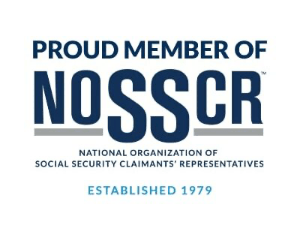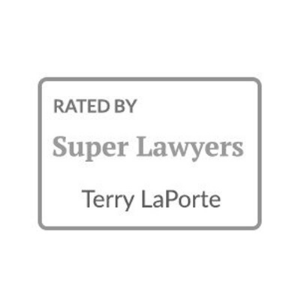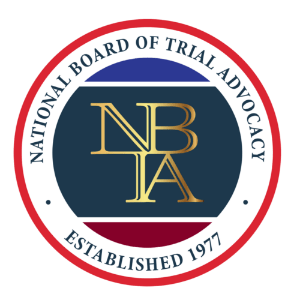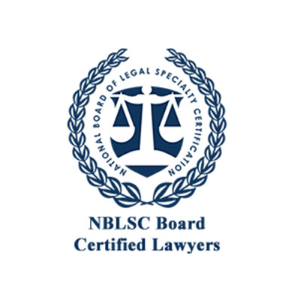The SSDI Podcast - EP2

- AUDIO TRANSCRIPT
THE SSDI PODCAST – EP2 : HOW TO KNOW IF SSA IS INVESTIGATING YOU ?
Speaker 1 0:00
Did you know that in 2023 the Social Security Administration’s cooperative disability investigations program saved taxpayers over $4 billion Wow, it’s a staggering number, right? Yeah. So today, we’re gonna do a deep dive into the world of Social Security investigations. Okay, we’re gonna look at why they happen and what you need to know if you ever find yourself in that situation that was good and to guide us on this journey, we’re going to be unpacking an article from the Laporte law firm called, How do you know if the SSA is investigating you? Okay? Now, can be a little unnerving to think about this topic, right? But we’re here to give you the knowledge you need to navigate this process with confidence, absolutely.
Speaker 2 0:41
Yeah. You know, it’s all about transparency and understanding your rights as a beneficiary.
Speaker 1 0:46
Yeah. So, first things first, why would the Social Security Administration even investigate someone? Right? It’s not like they’re just randomly choosing people, is it?
Speaker 2 0:54
No, not at all. Okay, the Social Security Administration has a responsibility to ensure that benefits are being distributed fairly and appropriately, you know, making sure that only eligible individuals receive benefits and that the amount they receive is accurate. Okay,
Speaker 1 1:11
so it’s about protecting the system from fraud and misuse Exactly. But what are we talking about here? What are some of the most common reasons for these investigations. Well, the
Speaker 2 1:22
article highlights a range of scenarios, from unintentional errors to deliberate fraud. Okay? So, for example, someone might fail to report a change in their income or work status, which could affect their benefit amount right. Or in more serious cases, individuals might exaggerate the severity of a disability, or even use someone else’s social security number to claim benefits they’re not entitled to. Right
Speaker 1 1:47
those benefits are a lifeline for so many people. Yeah, it’s crucial to make sure the system is being used properly. Absolutely. The article also mentions this program called cooperative disability investigations, or CDI. Yes, what can you tell us about that?
Speaker 2 2:01
The CDI is a specialized unit within the Social Security Administration that focuses specifically on investigating potentially fraudulent disability claims. They often work in conjunction with local law enforcement and other agencies to gather evidence and verify information.
Speaker 1 2:18
So like a detective agency for disability claims, exactly.
Unknown Speaker 2:21
It’s like a detective agency for disability claims. Wow,
Speaker 1 2:23
that sounds intense. Yeah, so if the CDI gets involved, it means they’re taking things pretty seriously, right? But let’s shift gears for a moment and think about this from the perspective of someone receiving benefits legitimately. Okay, how would they even know if they were being investigated? Yeah, it all seems very hush hush. You’re
Speaker 2 2:41
right. It’s not always obvious, right? And it’s important to remember that some contact in the Social Security Administration is routine and doesn’t necessarily mean you’re under investigation, right? However, there are certain signs that might warrant a closer look. Okay,
Speaker 1 2:57
let’s talk about those signs. What are some of the wet flags that might indicate the SSA is digging a little deeper into your case. One
Speaker 2 3:04
of the first things to pay attention to is the frequency and nature of communications from the SSA. Okay, if you suddenly start receiving an unusual number of calls, letters or requests for information they already have, that could be a sign that something’s up. So it’s not
Speaker 1 3:21
just about the contact itself, but the change in pattern that’s important Exactly. What else should people be aware of?
Speaker 2 3:27
Another red flag is requests for very specific types of documents, okay, like detailed pay stubs, a comprehensive work history, or even bank statements, right? If they’re asking for information that seems irrelevant to your case or that they’ve already collected. Yeah, it might be a cause for concern. I’m starting
Speaker 1 3:47
to get a little nervous just thinking about this. But what about those stories you hear about the SSA actually showing up at people’s homes? Is that a real thing, or is that just urban legend? Home
Speaker 2 3:57
visits do happen, okay, but they are extremely rare and usually reserved for cases where there is strong suspicion of fraud and they need to verify information firsthand, right? They can’t just barge in, though, okay, still need to follow legal procedures and obtain proper authorization. Okay? So
Speaker 1 4:16
it’s not like they’re gonna be peeking through your windows, right? But it’s still something to be aware of. Yes, what about receiving legal notices from the SSA? I imagine that’s never a good sign. You’re right.
Speaker 2 4:29
Legal notices are definitely something you should take seriously. Okay, they could be related to a variety of issues, such as allegations of fraud, overpayments or other legal matters.
Speaker 1 4:39
I’m assuming the term overpayments relates to receiving more benefits than you were entitled to. Yes. How does that even happen? And what are the consequences an overpayment
Speaker 2 4:49
can occur for various reasons, such as failing to report a change in income right, or receiving benefits based on inaccurate. Information the consequences can range from having to repay the overpaid amount to in more serious cases, facing penalties or even legal action.
Speaker 1 5:11
This is definitely a lot to process. It sounds like the SSA has quite a few tools at its disposal to investigate potential wrongdoing. Yeah. Is there anything else, or have we covered the major red flags?
Speaker 2 5:26
There’s one more tactic the SSA can employ, okay, though it’s incredibly rare and only used in very specific circumstances. Okay, surveillance. Wait, hold on.
Speaker 1 5:36
Are we talking about the SSA actually following people around, like in a spy movie, yes,
Speaker 2 5:41
but it’s typically only used when there’s compelling evidence to suggest someone is intentionally misrepresenting their situation right to receive benefits they’re not entitled to. Yeah, we’re talking about elaborate schemes, not just minor discrepancies or misunderstandings.
Unknown Speaker 5:55
So it’s not something most people need to worry about, right? But it’s still a bit unsettling to think about. Yeah,
Speaker 2 6:01
I understand. The important thing to remember is that the SSA has to operate within a legal framework, right? They can’t just investigate anyone on a whim. There are procedures and safeguards in place to protect the rights of beneficiaries. That’s
Speaker 1 6:15
reassuring to hear. Yeah. I think it’s easy to feel overwhelmed and anxious when thinking about these investigations, right? But it’s important to remember that the vast majority of people receive benefits legitimately and have nothing to hide, absolutely.
Speaker 2 6:27
Yeah. And even if you do find yourself facing an investigation, it’s not the end of the world, right? Knowing what to expect and how to respond can make a significant difference in the outcome. That’s
Speaker 1 6:39
a great point. Yeah, so far we’ve talked about why the SSA investigates the red flags to watch out for, yes, and the importance of understanding your rights, right? But what happens if those red flags start popping up? What concrete steps should someone take to protect themselves?
Speaker 2 6:55
Yeah, that’s the question on my mind too. You know, it’s easy to feel a bit panicked when you think about those red flags, right?
Speaker 1 7:03
So let’s shift our focus now to what you can actually do if you find yourself in that situation. Yeah, and it’s completely
Speaker 2 7:09
understandable to feel anxious, but you know, like we’ve been saying, knowledge is power, right, having a clear plan and knowing the steps to take can help alleviate some of that anxiety.
Speaker 1 7:21
So let’s dive into that plan. What would be your first piece of advice for someone who suspects they might be under investigation,
Speaker 2 7:29
the most important thing is to not ignore this situation. Okay? You know, burying your head in the sand will only make matters worse, right? Instead, take a deep breath, gather your information and approach the situation proactively.
Speaker 1 7:41
Okay, so that sounds like solid advice. So what does approaching the situation proactively actually look like in this context? It
Speaker 2 7:48
starts with understanding what the SSA is asking for and why review any letters or notices carefully, and don’t hesitate to contact the SSA directly if you need clarification or have questions.
Speaker 1 7:59
So communication is key, but I imagine it’s also important to keep a record of those communications Right. Absolutely.
Speaker 2 8:05
Documentation is crucial throughout this process. Keep a detailed record of every interaction with the SSA, including dates, times, names of individuals you speak with and summaries of conversations. Also keep copies of any documents you send or receive.
Speaker 1 8:21
So it sounds like creating a tapered trail is essential, in case any disputes arise later on. Exactly, are there specific types of documents people should have readily available just in case?
Speaker 2 8:31
Yes, there are having these documents organized and accessible. Can streamline the process if the SSA requests information, okay, first and foremost, make sure you have a copy of your initial application for benefits. That
Speaker 1 8:43
makes sense. It kind of lays the groundwork for your entire case. Exactly what else,
Speaker 2 8:47
if your claim involves a disability, gather all relevant medical records, okay, including doctor’s reports, test results, treatment plans and any documentation supporting your medical condition. These records provide objective evidence to support your claim,
Speaker 1 9:02
right? So those medical records become pretty critical in a disability case, yeah, what about if your claim is related to your inability to work? In
Speaker 2 9:10
that case, you’ll want to have documentation related to your work history, okay? This includes pay stubs, tax forms, job descriptions and any other documentation that demonstrates your previous work experience and
Speaker 1 9:23
earnings, and I imagine any documentation regarding changes in your income or living situation since your initial application would also be important precisely
Speaker 2 9:31
things like bank statements, lease agreements, proof of marriage or divorce, anything that reflects your current financial and living arrangements. Right. Having these documents readily available will help ensure a smoother process. Okay,
Speaker 1 9:44
so we’ve talked about communication documentation and gathering key documents, right? But dealing with the SSA can sometimes feel like navigating a bureaucratic maze. Yes, any tips for staying organized amid all the paperwork and deadlines? Staying organized
Speaker 2 9:58
is crucial, especially. Especially when dealing with something as important as your benefits, create a dedicated file or folder specifically for all your SSA related documents, and keep everything together in one central location. That way you’re not scrambling to find things when you need them. Yeah,
Speaker 1 10:14
I’m a big fan of folders and labels myself. What other organizational tips do you have?
Speaker 2 10:19
The SSA often sets deadlines for responding to requests or submitting documentation. Missing these deadlines can have serious consequences for your case, so develop a system for tracking them. Okay, use a calendar reminder app on your phone, or whatever method works best for you to stay on top of those deadlines. So
Speaker 1 10:37
it’s all about being proactive and not letting things slip through the cracks. Exactly? What if someone is feeling overwhelmed by the process, where can they turn for help?
Speaker 2 10:46
Never hesitate to seek assistance. If you’re feeling overwhelmed or confused, reach out to a friend, a family member or a social worker for support, right? They can offer a listening ear and help you stay organized. Yeah. And of course, if you’re facing a complex situation or need expert guidance, consider seeking legal representation. That’s
Speaker 1 11:06
a great point. We’ve talked about legal representation A few times now, but let’s delve into that a bit deeper. Okay, why is having a lawyer so crucial in these situations? Think
Speaker 2 11:16
of it this way, the SSA has an entire team of experts working for them, right? And you deserve to have someone in your corner who understands the system just as well, a lawyer who specializes in Social Security law can be your advocate, your guide and your translator throughout the process.
Speaker 1 11:34
So they’re not just there for the worst case scenarios, but can be a valuable resource every step of the way, exactly
Speaker 2 11:40
they can help you understand the SSAS requests, prepare your responses, ensure your rights are protected, right and even represent you in hearings or appeals if necessary. That
Unknown Speaker 11:51
brings up a good point. What about potential outcomes? How might an investigation typically play out?
Speaker 2 11:57
Yeah, it seems like there’s a spectrum of possibilities when it comes to these investigations, right? What are some of the most common ways these investigations might conclude you’re
Speaker 1 12:05
absolutely right? Not all investigations are created equal, right? Some might be resolved relatively quickly, okay, with a simple clarification or an update of information, maybe
Speaker 2 12:15
there was a misunderstanding or some paperwork was missing, right? In these cases, the investigation might be closed without any impact on your benefits.
Unknown Speaker 12:22
That’s reassuring to hear. So it’s not always a do and gloom scenario Exactly.
Speaker 2 12:25
However, some investigations might require a more in depth review of your case. This could involve the SSA requesting additional documentation, conducting interviews or even observing you in your daily life to verify the information you’ve provided.
Speaker 1 12:41
I imagine that level of scrutiny could feel a bit intrusive. It certainly
Speaker 2 12:46
can, yeah, and that’s why having legal representation can be so valuable. Right? A lawyer can help ensure the SSA is conducting its investigation fairly and respecting your rights throughout the process. So
Speaker 1 12:57
having that legal expertise in your corner can really make a difference in how the investigation unfolds. Yeah, what about the outcomes of these more in depth investigations? What are the possibilities there?
Speaker 2 13:07
Well, the outcome could range from a confirmation that you are indeed eligible for the benefits you’re receiving to a determination that you are receiving more than you should be okay. In those cases, you might be required to repay the overpayment, and your benefit amount might be adjusted going forward. That
Speaker 1 13:25
makes sense. It’s all about making sure the benefits are aligned with your actual eligibility. Are there any other potential outcomes we should be aware of?
Speaker 2 13:33
In some cases, the investigation might uncover evidence of intentional misrepresentation or fraud, right? This could lead to a suspension or termination of benefits, okay, and in more severe situations, even legal action.
Speaker 1 13:46
That’s a sobering thought. It really highlights the importance of being honest and upfront with the SSA. From the very beginning, I couldn’t
Speaker 2 13:53
agree more, transparency and accuracy are crucial throughout the entire process, from the initial application to any subsequent interactions with the SSA. Speaking of
Speaker 1 14:02
transparency, the article we’ve been discussing focuses primarily on what the SSA looks for when investigating individuals, right? But what about the other side of the coin? Yeah, what safeguards are in place to ensure the system itself is fair and transparent? That’s
Speaker 2 14:17
an excellent question, and it’s one that deserves more attention, yeah, while the SSA has a responsibility to prevent fraud and misuse of benefits, it’s equally important to protect the rights of beneficiaries and ensure the system is operating fairly and equitably. So it’s
Speaker 1 14:33
about striking a balance between protecting the integrity of the system and protecting the individuals who rely on
Speaker 2 14:39
it precisely, and there are mechanisms in place to achieve that balance. Okay. For example, beneficiaries have the right to appeal SSA decisions if they believe they’ve been treated unfairly or that a decision is inaccurate, okay. They also have the right to legal representation throughout the process. Those. Are
Speaker 1 15:00
important safeguards to have in place. It’s all about ensuring due process and fair treatment for everyone involved.
Speaker 2 15:05
Absolutely, the system is designed to be just as much about protecting the rights of beneficiaries as it is about safeguarding taxpayer dollars.
Speaker 1 15:13
This has been a truly eye opening Deep Dive. We’ve covered a lot of ground, from the reasons behind SSA investigations to the potential outcomes and the importance of understanding your rights and options as a beneficiary.
Speaker 2 15:25
It’s been a pleasure diving into this topic with you. Hopefully our listeners are walking away with a better understanding of this complex system and feeling empowered to navigate it with confidence. I
Speaker 1 15:36
completely agree, and remember, even though we’ve been talking about investigations, the vast majority of people receive benefits legitimately, right and have nothing to worry about. The goal here is to empower you with knowledge, not to instill fear or anxiety.
Speaker 2 15:52
Well said, knowledge is power, and the more you understand about the system, right, the better equipped you’ll be to advocate for yourself and ensure your rights are protected Absolutely.
Speaker 1 15:59
And if you have any lingering questions or concerns, don’t hesitate to seek out additional information from reputable sources or consult with a legal professional. Excellent
Speaker 2 16:10
advice. Remember, you don’t have to navigate this alone. There are resources available to help you every step of the way.
Speaker 1 16:16
Well, that brings us to the end of our deep dive into Social Security investigations. It’s been a fascinating and informative journey until next time, stay informed and stay empowered.
- Disclaimer: this podcast has been generated with the help of an Artificial Intelligence and is based on blog posts written by LaPorte Law Firm Disability expert attorneys. You can read all our latest blog posts here.

Helping clients win their cases for over 40 years
LaPorte Law Firm has been representing Social Security Disability claimants in the Bay Area since 1982. Since starting his practice specializing in Social Security Disability claims, Terry LaPorte has successfully represented thousands of disability claimants, with LaPorte Law Firm opening offices in San Jose, Oakland, San Francisco, Santa Cruz, Burlingame, Sacramento, and Hawaii.
We are a full-service law firm providing expert legal representation at all stages of the Social Security Disability benefits process. As a local law firm mainly servicing the Bay Area, we are familiar with the administrative judges at the San Jose, San Francisco, and Oakland hearing offices, as well as the staff at local Social Security field and hearing offices. In addition, with this being a federal area of law, we also represent clients all over the country.
Meet our attorneys
Our team of ethical, professional, and dedicated lawyers are the cornerstone of our success.

Terry LaPorte
Attorney

Kevin LaPorte
Attorney

Kelsey LaPorte
Attorney

Maria Miranda-Hammon
Legal Representative
How it works:
- Complete the form so we can learn more about your situation.
- We will reach out within 48 hours to schedule your free, no-obligation consultation with an attorney.
- If your case can be pursued, we’ll start working on it.
- We only get paid if your case is approved.
How we can help:
- Free case evaluation by an attorney
- Social Security Disability Insurance application
- Social Security Disability Insurance appeal
- Disability hearing preparation
NO FEES UNLESS YOU WIN.
Award-winning service
Equipped with years of experience and thousands of successful cases, LaPorte Law Firm is the leading disability attorney in the Bay Area, and we have the awards and certifications to prove it.














